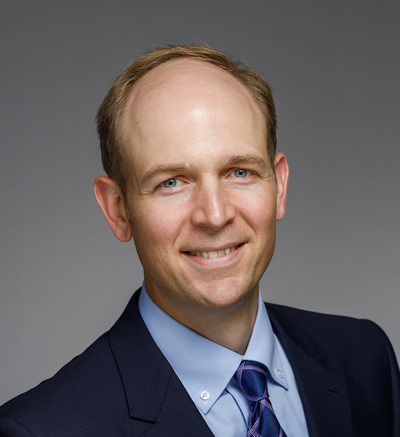Professor Samuel Bray cited in Justice Ruth Bader Ginsburg’s dissent in Rotkiske v. Klemm

A brief filed by Notre Dame Professor of Law Samuel Bray, along with Professors David Marcus and Stephen Yeazell of UCLA, was cited by Supreme Court Justice Ruth Bader Ginsburg in her recent opinion in Rotkiske v. Klemm, issued December 10.
The question in Rotkiske v. Klemm was about the statute of limitations for the Fair Debt Collection Practices Act, especially in cases of fraud: does the countdown clock start when the fraud is committed, or when the victim becomes aware of it? Petitioner Kevin Rotkiske defaulted on $1,200 of credit card debt accumulated between 2003 and 2005. When Klemm & Associates tried to collect that debt from Rotkiske, they were unable to reach him at his last known address in 2008. They used the same address in 2009, still unable to locate him, and received a default judgment in their favor. Rotkiske, who had moved, only received notice of the collection, lawsuit and judgement in 2014 when he applied for a mortgage. He sued under the FDCPA, claiming unfair debt collection practices, but the lower courts held that the statute of limitations in the act had already run.
The Supreme Court affirmed 8-1, ruling narrowly that, absent an equitable doctrine, the statute of limitations for the act begins at the time of the violation and not at the time of knowledge. Justice Ginsburg dissented. She cited the brief of Professors Bray, Marcus, and Yeazell, and concluded that the statute of limitations should run from the discovery of the fraud and that the petitioner had adequately preserved the argument.
The amicus brief filed by Professors Bray, Marcus, and Yeazell offered a historical overview of the understanding the discovery rule, including its roots in equity.
“Legal scholars have an important duty to help courts and litigants by shedding light on dark corners of the law,” Bray said. “This case was an opportunity to do that.”
Bray said the brief may have even had an effect on the scope of the majority opinion — which carefully limits its holding to cases where no equitable doctrine applies. That effect would be hard to prove, however.
This case is one of several on the Supreme Court’s docket this term related to equity. Although equity has seemed to fade from view in legal teaching and legal scholarship, Bray said it is making a resurgence, including at Notre Dame Law School. This semester Professor Bray and Professor Paul Miller co-taught a seminar on equity — the first time the subject has been taught at Notre Dame Law School in over 60 years.